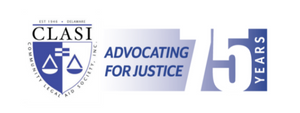June 29, 2020
Accessible Voting Available for July 7th Presidential Primary
The Delaware Department of Elections (“Department”) and Disabilities Law Program of Community Legal Aid Society, Inc. (“DLP”) are pleased to announce the reactivation of Delaware’s pilot accessible absentee voting program through Democracy Live. This system offers electronic delivery of accessible ballots, a ballot marking tool, and submission by voter choice of mail, fax or email for military and overseas voters as well as voters with disabilities. Delaware law has provided for electronic delivery and return of absentee ballots for military and overseas voters covered under the provisions of the Uniform and Overseas Citizens Absentee Voting Act (UOCAVA) since 2010, and for voters who are sick or disabled since 2012.
The Department is piloting the Democracy Live system for the Presidential Primary to offer these services to replace a now retired in-house system that formerly provided such services, but which is no longer compatible with the State’s current election systems. Earlier this month the Department paused this pilot program to research claims about the security of the system recently published in the media. These concerns focused particularly on system hosting arrangements and the online return of ballots. Although the Department has experienced no issues with the system, and has received positive feedback from many voters who have used the system, the Department took these concerns seriously and thoroughly discussed and researched them.
The DLP, as Delaware’s Protection and Advocacy System for people with disabilities, immediately raised concerns with the Department. They claimed that without an accessible electronic ballot delivery and marking system, paper absentee ballots would not be accessible to voters with print or visual disabilities, who would have to give up their privacy and independence to seek assistance in voting or potentially risk their health during the COVID-19 pandemic to vote in person.
The DLP and the National Federation of the Blind (NFB) contacted the Department about the feasibility of reinstating Democracy Live or implementing an alternative accessible voting option for the July 7th primary and beyond. An inaccessible ballot system, the advocates asserted, was contrary to the mandates of Title II of the Americans with Disabilities Act (“ADA”), Section 504 of the Rehabilitation Act (“Section 504”), and Delaware law, including Article I, Section 3 of the Delaware Constitution, which requires free and equal elections.
Acknowledging these concerns, the Department undertook a thorough review of the security of the Democracy Live system. This review included dialogue with some of the researchers who have recently published articles citing security concerns about the system in order to discuss those concerns and what action steps could be taken to mitigate them. The Department is also working closely with the State’s Department of Technology and Information (“DTI”) to ensure
the highest levels of security are in place. Following these efforts, the Department reinstated the pilot program for accessible electronic delivery and marking of ballots with additional security enhancements. Immediate steps include a switch to client-side hosting, as well as discontinuing the electronic ballot return option. These changes address directly concerns raised in the recent articles. Voters continue to be provided their ballots electronically, can mark their ballots electronically, and have options to return marked ballots by mail, fax, or email (with the ability to be encrypted).
Looking ahead to fall elections, the Department is working with DTI to continue to enhance system security and transparency, while maintaining the convenience and accessibility features of the system.
The Department remains committed to ensuring equal opportunity for people with disabilities to vote in the upcoming July 7th Presidential Primary Election and beyond. Laura Waterland, Project Director of the DLP, said “We appreciate the seriousness with which the Department addressed our concerns. People with disabilities take their civic duties seriously and we are pleased that the Department is so committed to ensuring we all can vote.”
“We commend Delaware election officials for hearing our concerns and taking swift action to protect the right of blind voters to cast our ballots privately and independently,” Mark Riccobono, President of the National federation of the Blind added, “We continue to demand that all states implement accessible absentee and mail voting as soon as possible to protect blind voters during the pandemic and to fully enfranchise us going forward.”
Press contacts:
Anthony Albence, Delaware Department of Elections, 302-739-4277, anthony.albence@delaware.gov
Laura J. Waterland, Esq. Disabilities Law Program, Community Legal Aid Society, Inc., 302-479-8906, lwaterland@declasi.org
Eve Hill, Partner, Brown Goldstein Levy, on behalf of the National Federation of the Blind, 202.802.0925cda; ehill@browngold.com
